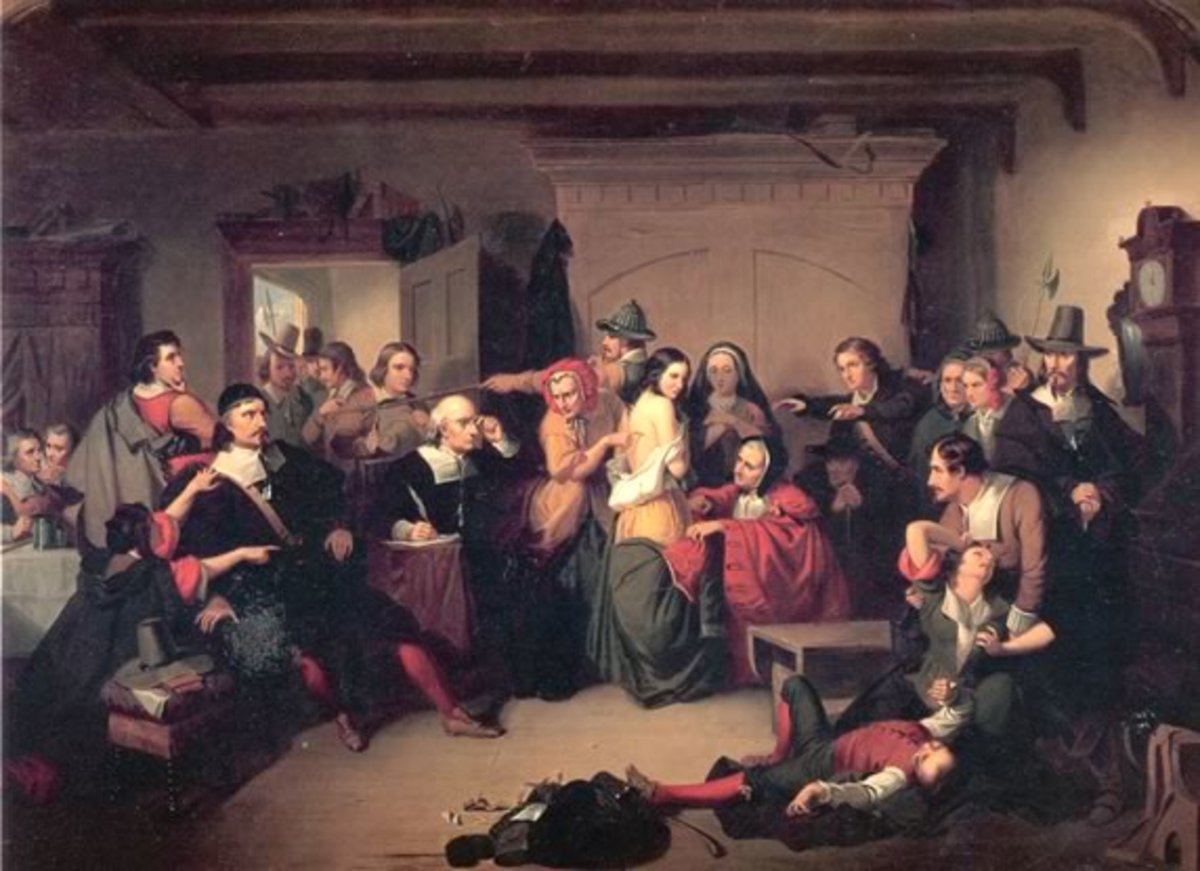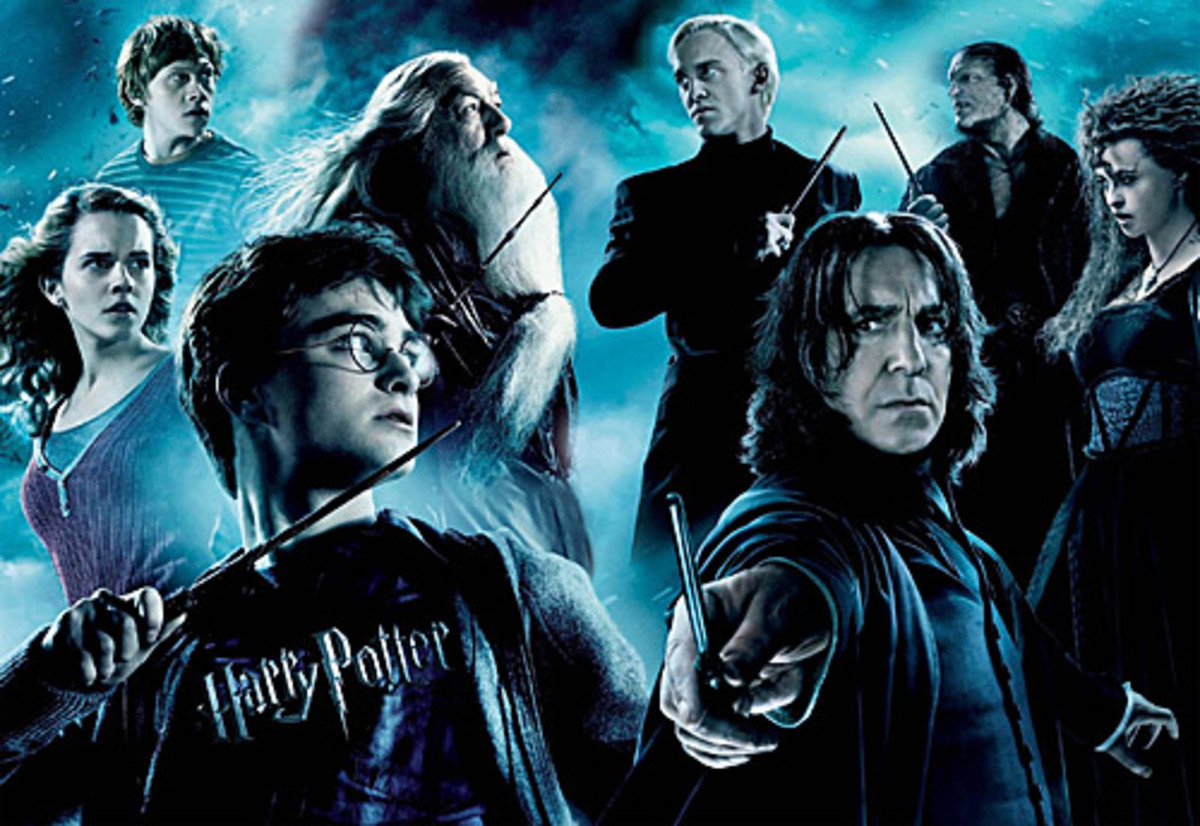Harry Potter and the Salem Witch Trials

Acting on the Basis of Fear and Ignorance
A few days ago, as I showed a clip from a movie about the Salem Witch Trials to my Early American History students, my thoughts drifted, strangely enough, to Harry Potter. I, like many parents, will always feel a certain debt of gratitude to J.K. Rowling for writing those seven books. This is partly because I had a great time reading them. Going through the series, in fact, was the first time in a long while that I had read something purely for fun. And in addition to being fun, there was plenty of meat in those books in terms of universal human themes and struggles.
But I am most grateful to Rowling for the impact that her books have had on my kids. Fortunately, both of my daughters picked up reading rather easily, and they started reading children's novels at a pretty young age. The Harry Potter books, however, were the first ones to capture their imaginations. When I saw my oldest daughter get excited about reading the first book of the series, I decided to start reading them too in the hope of keeping the fire in her going and of giving us an experience that we could share. She did not need the encouragement, however, and I actually struggled to keep up with her. Then, when I finally finished the entire series shortly after she had completed all of the books, she kept going, and she has probably read all of the books five or six times since. It wasn't long until her younger sister joined her, and she is now about halfway along in her sixth run through the series. And over the years, we have met many parents who can tell similar stories.
For as long as I can remember, people have been complaining that kids do not read enough. So you would think that all parents, like myself, would be overjoyed when a phenomenon such as Harry Potter comes along. For many kids, the Harry Potter series has been what the Star Wars movies were for my generation. The difference was, however, that Harry Potter arrived first in book form. So when the movies came along, millions of kids (and adults) got to see firsthand that reading a novel is a much richer experience than watching a movie. And hopefully, this realization will stay with the people who grew up with Harry Potter for the rest of their lives.
Unfortunately, there have been many kids over the past fifteen years who have not had the chance to share in this experience, and this is not so much due to a lack of interest or reading ability. Instead, this is because of certain concerns from their parents. Because the Harry Potter books are about witches and wizards performing spells and of certain magical creatures and spirits lurking about, some parents don't want their kids exposed to these stories of supposedly demonic, satanic, occult-like forces and practices.
On some level, I guess that I can understand these concerns. If you believe that Satan and his demons are actually out there actively working to tear human beings away from a loving God, then it may be better to be safe than sorry. Even if a book has been apparently created purely for entertainment, you don't want to take this stuff lightly. But I can't help thinking that this aversion to Harry Potter is not really a reflection of faith, devotion, and a desire to do God's will. Instead, it is basically a reflection of the closely related, very common human traits of fear and ignorance.
If you accept the New Testament as the word of God, then you are compelled to believe in Satan and his legion of demons. Jesus, after all, spends a great deal of time in the gospels casting out various demons from victims of possession. The magical forces in the Harry Potter books, however, bear no resemblance to what is described in the Bible. In fact, I imagine that virtually no one, whether Christian or otherwise, believes that there are people out there performing spells by waving wands, riding around on brooms, sending messages with carrier owls, or interacting with creatures such as elves, goblins, centaurs, three-headed dogs, trolls, basilisks, and dragons. Any sane person recognizes that the world of Harry Potter only exists in the realm of pure fantasy. And if parents want to prevent their kids from being exposed to fantasy, then there isn't much in terms of children's entertainment left to choose from. Anything Disney would definitely be out, particularly those movies based on classic fairy tales. You can also forget Greek mythology - sorry Percy Jackson fans - Tolkien, much of Roald Dahl, Dr. Seuss, and even a great deal of PBS Kids. You might even have to be careful with the Christian writer C.S. Lewis, given the fact that The Chronicles of Narnia has a lot of fantasy, albeit with plenty of thinly disguised Christian metaphors.
And this all brings me back to the Salem Witch Trials. Strangely enough, those good Christian Puritans who went witch-crazy in the late 1600's were paranoid about forces that had little basis in their scriptural tradition. Sure, there are demons running around in the New Testament, but I am unaware of any Biblical references to witches and wizards causing teenagers to gyrate uncontrollably or using their satanic powers to travel magically as specters and attack victims late at night. This is one of the classic cases in American History of people letting their fear and ignorance get the better of them, with twenty innocent people paying the ultimate price.
If you look at my catalogue of hubs, you will see that religion is probably my second favorite topic to write about, and I especially enjoy addressing controversial topics that might rub some people the wrong way. My goal, however, is not to change anyone's core religious beliefs. Instead, the goal of my writing is generally the same as one of my primary goals in teaching: encouraging people to closely examine their core beliefs. And in my mind, when it comes to religious beliefs, the actual theology is secondary. What really matter are the thoughts, feelings, and experiences that have driven a person to those particular beliefs and the behavior that results from them. And whatever a person's theology may be, it is hard to imagine anything good flowing from a belief system rooted in and sustained by fear and ignorance. A belief system, on the other hand, informed by reason, compassion, and a variety of human experiences is likely to bear positive fruits, and if nothing else, this type of worldview will not cause a person to shy away from all of those great works of literature that have periodically appeared on lists of banned books.








